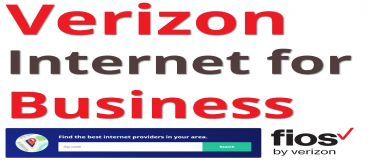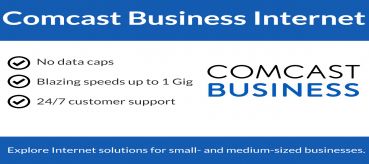Technology is Evolving Making Companies More Productive

As another year folds, let's go back to how technology is evolving making our life much easier, and how we conduct business more flexible. What is one of the most important objectives for most small businesses? Efficiency. Emerging technology is assisting businesses in becoming more productive.
The company can accomplish more with less when quick, efficient, and accurate operations. Even if the dream of full-fledged productivity isn't totally attainable, many professional teams are making progress.
Three Decades of Unparalleled Technological Advancement
With the introduction of personal computers and the Internet in the 1990s, technology entered unknown terrain. It didn't take long for technological breakthroughs to boost productivity in businesses. Every desk had a computer all of a sudden. Individual printers were strewn throughout the place. Thanks to dial-up connections, workers were also linked to the expanding World Wide Web.
Take a few decades forward, and the landscape has drastically transformed. Laptops, tablets, and cellphones are common ways for people to carry their computers with them. They can stay connected to their coworkers as long as they have access to WiFi. And what about commercial landlines? According to European research, they may become extinct by 2028.
Indeed, the growth of the Internet has sparked the so-called Third Industrial Revolution, which continues to open possibilities for enterprises. This offers access to previously untapped sources of small-business productivity. Here are a few examples of how technology is causing more efficient working procedures.
The Cloud Is Becoming A Virtual Archive
Remember backing up everyone's computers at five o'clock in the morning or setting up a modest, climate-controlled room as a "server farm"?
For many businesses, the cloud has eliminated the need for physical storage.
As more workers migrated to virtual quarters during the peak of the 2020 epidemic, the cloud saw a surge in activity. According to Flexera's State of the Cloud Report, 86 percent of small to mid-sized business owners have increased their reliance on cloud computing. As a result, the cloud has become a commonplace method of storing and sharing both short- and long-term data.
How does this help businesses become more productive? For starters, having all or most data available 24 hours a day, 7 days a week from any device enables faster decision-making.

Brands Have A Larger Means To Reach Customers
Brands have more ways than ever to expand their audience, from blogs to podcasts, social media pages to video series. For example, a firm can tweet content to millions of individuals with just a few keystrokes. That is the essence of power.
Many businesses aren't taking advantage of all of the tech-driven megaphones at their disposal. That's all right. It's preferable to have a strong Instagram presence over a weak TikTok presence.
Organizations should, however, not be afraid to try out new platforms every now and then. They'll be able to observe which ones generate the most leads, conversions, and repeat customers this way.
Related Article: Things to Consider Before Reopening Your Business in 2022
Employees Can Benefit From More Flexible Work Schedules
You know it's a major deal—and one that's aided by technology—when even Wall Street reluctantly embraces the prospect of hybrid working. Remote work has become more common in several industries since the end of the decade. As a result, employees have expressed a greater desire to be more flexible with their schedules.
Many employees may now work from home because to technological advancements such as cloud-based systems, private texting applications, and Zoom. They haven't, however, eliminated the concept of a real workplace. Many employees prefer the flexibility of being able to select where they work from day to day or week to week. As long as the calendars are in sync, technology makes this simple.
Although the definition of flexibility varies from one employee to the next and from one company to the next, it is a worthwhile goal. Six out of ten Gen Z and Millennial employees feel flexibility is important when deciding where to work. Leveraging technology to offer flexible work arrangements might thus assist businesses wanting to hire brilliant people who are willing to put forth their best efforts.

Employers May Find And Hire Employees All Across The World
Finding and onboarding employees from other locations and time zones, much alone nations, used to be difficult. Thanks to technological advancements, many of the stumbling blocks to working with a global workforce have been removed.
There are a plethora of recruiting websites for overseas job seekers to choose from. As a result, organizations of all sizes may tap into top achievers all across the world. This is fantastic not just for the team but also for the individual. It also aids in the productivity of businesses by ensuring that DEI targets are met.
To be sure, a smooth shift to a workforce that includes international personnel requires some forethought. It is, nonetheless, worth putting to the test. Workers can contribute as long as they have access to dedicated WiFi hotspots.
Employees May No Longer Execute The Same Tasks Over And Over
Manual operations, such as transferring data from one platform to another, are inefficient. They are also vulnerable to the issue of human mistakes. Unfortunately, despite having the ability to do so, the majority of businesses do not appear to be doing anything to reduce waste.
67% of workers complain that they spend too many hours per week doing the same things. Despite this, they think that they could gain roughly five hours each week if their employers used automated software applications.
Though the high statistics are discouraging, there is a promise on the horizon for enterprises to become more productive. As more businesses experiment with automation technology and shift their processes digitally, they may become more comfortable with "outsourcing" workers' manual jobs. As a result, such employees will have more time to focus on higher-level obligations.

Customer Insights Are Provided Right Now
Marketers with more experience may recall the hassles of attempting to understand clients' thinking offline. Collecting surveys, contacting target personas, and setting up focus groups took time and effort. Fortunately, getting information regarding audience buckets has vastly improved.
Some of the technological benefits have resulted in better consumer-brand connections. The capacity to rapidly communicate with users across many digital formats, including social media, is the most important of them. Having instant access to customers via platforms like Facebook and Twitter, for example, can help inform and improve marketing messaging. Direct data access can lead to an increase in sales conversions.
What's the bottom line? Businesses can make better product and customer experience decisions when there are fewer barriers between them and their target markets.
Employees Can Manage Their Benefits On Their Own
What is a time-zapper for small businesses? Managing employee benefits, such as retirement plans, is a big-time sink. Unfortunately, many companies are unprepared to respond to 401ks or even health savings accounts queries.
As a result, many benefit and incentive partners now allow employers to provide excellent benefits to their employees without having to spend time maintaining those benefits. What is the mechanism behind this? Employees are given privileged login access once user accounts have been set up. They can shift their money, get tax records, ask questions through internet portals, and take control of the majority of the process once they've gotten into the system.
This form of self-service is similar to what you'll find in the world of online purchasing. As a result, it feels natural, especially to younger employees. As a result, they'll be more likely to jump in, freeing businesses from having to handle the administrative responsibilities that come with workplace benefits packages.
It's a lofty ambition to achieve 100 percent efficiency. Impressive productivity, on the other hand, isn't a pipe fantasy. Every day, new technological breakthroughs are introduced to the market to help businesses become more productive. Businesses may get closer to decreasing friction points and streamlining operations with each technological breakthrough.
Related Posts
Mon, Apr 20, 2020 11:13 PM
Business Internet Guides for Entrepreneurs
Small businesses need to grow, but how big should your business become before you buy it online? Whether you started out as a sideshow or a brick-and-mortar business, successful small businesses are finding it increasingly difficult to decide when to shell out money for an Internet business.
Wed, Apr 22, 2020 11:34 PM
Find Verizon Internet for Business Near You!
Verizon provides Internet for business in more than 40 states in the US, speeds are limited to 15 Mbps, and many businesses will need more juice. If you're in the Northeast, you can enjoy high-speed Internet via Verizon's FiOS. This is ideal for businesses that need high speeds, such as restaurants, hotels, medical facilities, hospitals, schools, and other businesses.
Thu, Apr 23, 2020 12:00 AM
5 Best Small Business Internet Service Providers (2021)
The following Internet Service Providers are not listed in any particular order, but we have ranked these five companies as worthwhile due to some key factors such as speed, reliability, cost, and overall customer satisfaction.
Thu, Apr 23, 2020 11:52 PM
Why Business Internet is More Expensive Than Residential Internet
This question is asked so often today that it seems worth explaining, but here are 5 reasons why business Internet is more expensive than Residential Internet packages.
Fri, Apr 24, 2020 5:17 AM
Comcast Internet For Business: Internet, Phone, TV, and Other Solutions for your Business.
Comcast Business is US largest cable provider for small and medium-sized businesses and has become a force in the market, recognized by leading industry over the past two years as one of the fastest-growing providers of high-speed broadband to business customers




